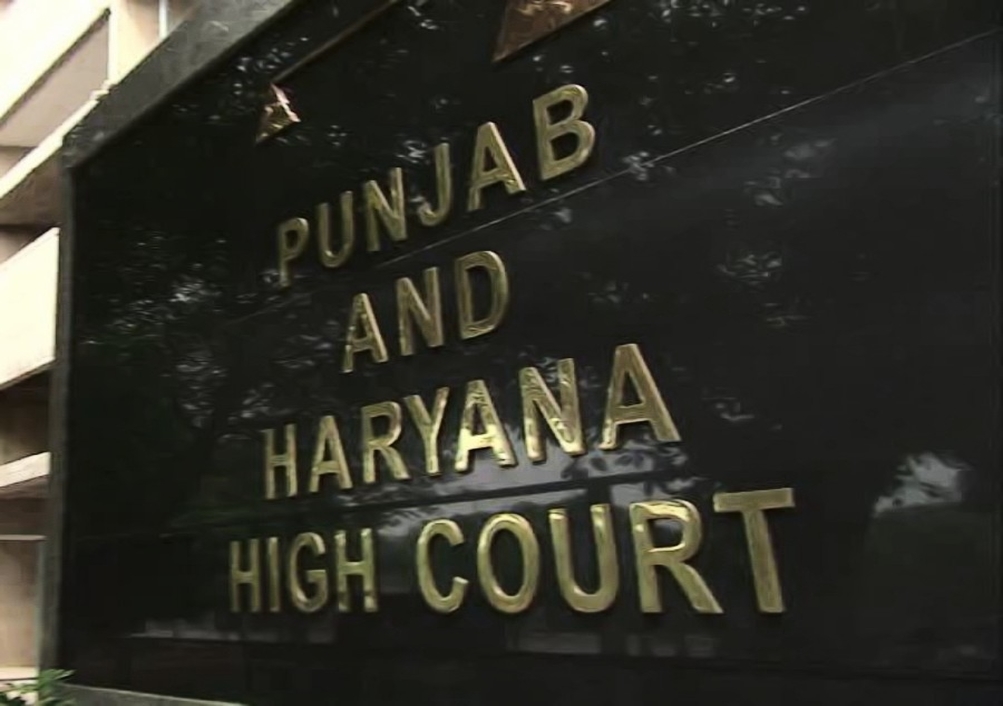In CWP No.22539 of 2021 (O&M)-PUNJ HC- Pendency of proceedings before NCLT or imposition of moratorium in said proceedings will not affect prosecution of directors of company u/s 27 of Consumer Protection Act, 1986: P&H HC Justice Rajbir Sehrawat [27-05-2022]

Read Order: Rajinder Kumar Gautam and Another v. State Consumer Disputes Redressal Commission U.T. Chandigarh and Others
Monika Rahar
Chandigarh, June 9, 2022: The Punjab and Haryana High Court has recently held that the pendency of the proceedings before the NCLT or imposition of any moratorium in the said proceedings relating to the Corporate Debtor is not to affect the aspect of prosecution of the directors of the company under Section 27 of the Consumer Protection Act, 1986 .
The Bench of Justice Rajbir Sehrawat further held, “The initiation of the proceedings under Section 27 of the Act is and in any case, can be for an independent liability for not complying with orders of the Commission, than the liability to pay the amount per se… Hence, irrespective of the fate of the proceedings pending before the NCLT or the effect of order of moratorium qua the Corporate Debtor, the proceedings against the petitioners can very well be continued for their prosecution under Section 27 of the Act.”
The brief facts involved in the case are that M/s Ansal Lotus Melange (ALM) Projects Pvt. Limited is a real estate developer which has developed and constructed the project under the name and style of Orchard Country Luxury Apartments, Mohali. The first petitioner was the Director while the second petitioner was the Promoter Director of the above-said company.
The second and the third respondents had booked and were allotted a flat/ apartment. In 201, pursuant to the said booking, a detailed flat/apartment buyer agreement was executed between the said respondents and the above-said ALM company; Rs. 2,53,882/- was paid to the company as earnest money/booking amount and the company promised to deliver the possession to the said respondents within a period of 48 months of the execution of the said agreement, extendable up to 48 months.
The company failed to deliver the possession of said unit within the promised period and as a result, the said respondents filed a consumer complaint before the State Consumer Disputes Redressal Commission, U.T. Chandigarh wherein the company was made a party through its Managing Director/Director, besides the Managing Director and the Branch Manager of the company having been made party separately.
The Consumer Commission disposed of the said complaint directing the company to refund the entire deposited amount to the second and the third respondents (herein) along with interest. However, since this decision was not complied with, an execution petition before the State Consumer Commission. The said commission ordered the initiation of the proceedings against the petitioners under Section 27 of the Act for punishment for non-compliance with the order of the commission.
Since the proceedings under Section 27 of the Act were ordered to be initiated, a warrant of arrest was issued for producing the petitioners before the State Commission to face the trial. At this stage, the present petition was preferred by the petitioners.
The case of the petitioners’ counsel was that the issue regarding the debts of the company, including the amounts of the second and the third respondents, was already pending before the National Company Law Tribunal, Delhi (the NCLT). The Counsel added that the Tribunal ordered moratorium qua the company, therefore, all the proceedings qua the company or its officials have to wait till the decision of the NCLT in the matter. Also, the Counsel asserted that the claim of the respondents before the Interim Resolution Professional (IRP) was approved by the COC, therefore, the present proceedings cannot be continued.
Further, it was contended that since the petitioners were not originally parties in the final order passed in the complaint, therefore, they were not even liable for non-compliance with the said order, hence, they could not have been summoned by the Commission for inflicting punishment under Section 27 of the Act.
On the contrary, the Counsel for the State added that at the stage of filing the complaint, the company was impleaded as a party through its Managing Director and the Directors, therefore, if the final order passed by the Consumer Commission was not complied with, the action can very well be initiated against the natural persons, who were manning the said post at that time. The counsel further submitted that in case the execution procedure envisages a coercive process, including prosecution and imprisonment, then, ultimately the natural persons have to be impleaded as a party.
At the very outset, the Court observed that it did not find any substance in the argument raised by the counsel for the petitioners. Elaborating upon this observation, the Court held that the initiation of the proceedings under Section 27 of the Act is and in any case, can be for an independent liability for not complying with orders of the Commission, than the liability to pay the amount per se.
Therefore, the Court held that the pendency of the proceedings before the NCLT or imposition of any moratorium in the said proceedings is not to affect the aspect of prosecution of the directors of the company under Section 27 of the Act.
“Hence, irrespective of the fate of the proceedings pending before the NCLT or the effect of order of moratorium qua the Corporate Debtor, the proceedings against the petitioners can very well be continued for their prosecution under Section 27 of the Act”, Justice Sehrawat held.
In view of the above, finding no merit in the present petitions, the same were dismissed.
Sign up for our weekly newsletter to stay up to date on our product, events featured blog, special offer and all of the exciting things that take place here at Legitquest.




Add a Comment